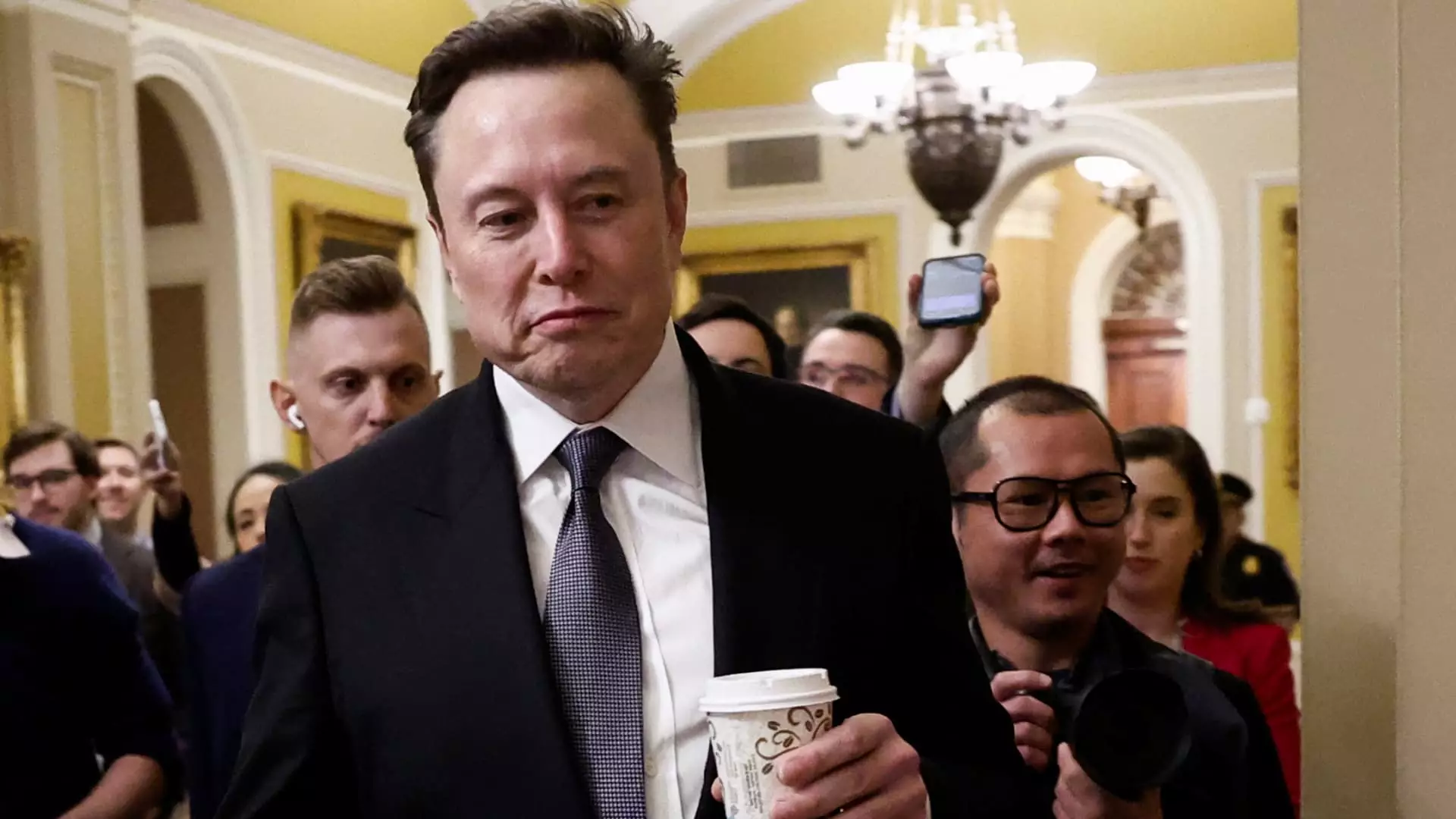In recent months, the intricate relationship between business interests and political maneuvering has come to the forefront, particularly concerning the ongoing U.S.-China tensions. Recent events have shown how figures like Elon Musk influence significant legislation while also navigating the tumultuous waters that separate corporate objectives from national security concerns. The House Democrats, led by Representatives Jim McGovern and Rosa DeLauro, criticized their Republican counterparts for capitulating to Musk’s interests, which they allege hampered a much-needed bipartisan government funding bill aimed at regulating U.S. investments in China.
With a budget crisis looming, Congress approved a temporary funding measure to avert a government shutdown. However, McGovern expressed disappointment over the abandonment of crucial provisions within the original bill. According to him, these provisions were essential for safeguarding American technological advancements, particularly in the realms of artificial intelligence (AI) and quantum computing. The implications of such decisions transcend mere politics—essentially framing national security through the lens of economic competitiveness.
Musk’s Tesla stands as a unique case study in the modern global economy. As the only foreign automaker with a factory in China without a local joint venture, Tesla has strategically positioned itself to capitalize on the lucrative Chinese market. Critics argue that Musk’s vested interests in China may influence his dealings in the U.S., as he aims to maintain favorable relations with the Chinese government. McGovern’s remarks regarding Musk’s motivations point to a troubling concern: as Tesla expands operations in China, the line between corporate success and national security grows increasingly gray.
Much of Musk’s strategy appears to hinge on the timeless business principle of risk management. By establishing a battery plant in proximity to his Shanghai factory, Musk not only bolsters Tesla’s supply chain but potentially jeopardizes U.S. technological leadership. The development of an AI data center in China would further complicate the already fraught U.S.-China relationship. These activities raise uncomfortable questions about where loyalty lies—whether in fiscal responsibility to shareholders or in safeguarding American interests amidst rising tensions.
DeLauro’s assertion that Musk has ingratiated himself with Chinese Communist Party leaders seems to underscore a growing awareness within Congress regarding the leverage that billionaires wield. By aligning closely with foreign interests, Musk’s decisions could reverse progress made in American technology sectors. His relationship with Trump is particularly revealing. The former president’s reported directive—that the GOP should obstruct a bipartisan funding bill to facilitate a more favorable economic landscape for his agenda—shows the extent of the influence that business magnates can have on legislative processes.
The comedic undertones of the situation were not lost on observers. Musk’s flippant remark about DeLauro in response to her concerns—a response that even verged on personal attacks—captures the contentious nature of modern political discourse. The increasingly public spat reflects an evolving reality where billionaire entrepreneurs find themselves at the intersection of politics, wielding considerable sway in determining policy directions.
The Broader Context of U.S.-China Relations
As the U.S. grapples with its geopolitical standing, Musk’s involvement raises existential questions about national interests. His actions bring attention to the delicate balance the U.S. must maintain in a multipolar world where economic and technological prowess is at stake. By attempting to exert control over significant resources abroad, Musk may unintentionally shape the narrative on how American corporations engage with foreign markets.
Musk’s financial campaigning in support of Trump further emphasizes the intertwining of business and politics. As he prepares to advise the incoming administration on ways to cut regulations, one wonders what the long-term implications will be for U.S. enterprises navigating an increasingly complex international landscape. While proponents argue for the benefits of deregulation, detractors warn that such actions may compromise ethical standards, particularly when it involves maintaining national security.
The evolving saga surrounding Musk, his corporations, and American political figures demonstrates a critical juncture in U.S.-China relations. As technology companies find themselves operating under both domestic and international pressures, how they navigate these waters could determine the future layout of global economic dynamics. The intersection of finance and policy remains fraught with challenges, necessitating critical scrutiny to ensure that national interests do not sacrifice technological leadership at the altar of corporate profit.

